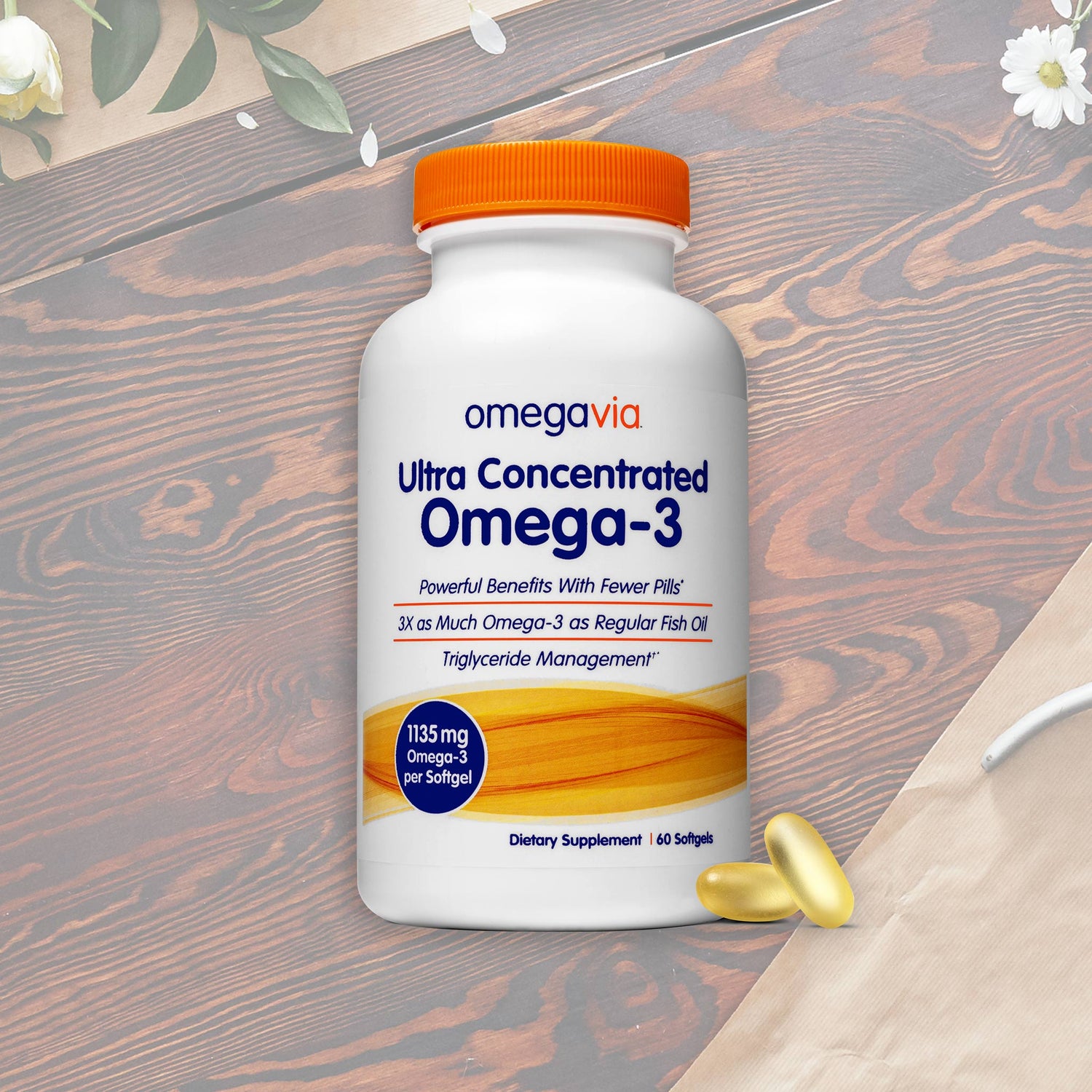The Omega-3 and Omega-6 Balance
[caption id="attachment_11081" align="alignleft" width="500"] Most of our Omega-6 fats come from vegetable seed oils made from soy, corn, canola, cottonseed, sesame, sunflower, safflower, and peanut.[/caption]
For now, let's focus on how to reduce Omega-6 fats.
Omega-3s and 6s have opposing functions in the body. Think ying-yang. How much Omega-3 or fish oil you need depends on how much Omega-6 you get in your diet.*
Omega-6 are largely pro-inflammatory. For eons, our ancestors ate a roughly 1 to 1 ratio of these two fats. This is ideal.
But things haven't been ideal for a few decades.
We've been eating almost 20 times as much Omega-6 as Omega-3. Part of our myopic love for Omega-6-rich vegetable oils is that it reduces cholesterol. In 1969, the Los Angeles Veterans Trial studied the replacement of dietary saturated fats with Omega-6-rich fats. The group on the high Omega-6 diet had lower cholesterol and fewer cardiovascular events. But they started dying at alarming rates.
Oops!
No one issued a memo. It was the dawn of cholesterol-phobia and the study was quietly forgotten.
Most of our Omega-6 fats come from vegetable seed oils made from soy, corn, canola, cottonseed, sesame, sunflower, safflower, and peanut.[/caption]
For now, let's focus on how to reduce Omega-6 fats.
Omega-3s and 6s have opposing functions in the body. Think ying-yang. How much Omega-3 or fish oil you need depends on how much Omega-6 you get in your diet.*
Omega-6 are largely pro-inflammatory. For eons, our ancestors ate a roughly 1 to 1 ratio of these two fats. This is ideal.
But things haven't been ideal for a few decades.
We've been eating almost 20 times as much Omega-6 as Omega-3. Part of our myopic love for Omega-6-rich vegetable oils is that it reduces cholesterol. In 1969, the Los Angeles Veterans Trial studied the replacement of dietary saturated fats with Omega-6-rich fats. The group on the high Omega-6 diet had lower cholesterol and fewer cardiovascular events. But they started dying at alarming rates.
Oops!
No one issued a memo. It was the dawn of cholesterol-phobia and the study was quietly forgotten.
Arachidonic Acid - a major dietary source of inflammation
The Omega-6 in our diet is mostly Linoleic Acid (LA). This Omega-6 can get converted to Arachidonic Acid (AA) depending on what else you eat. AA has an impact on inflammation and your overall health because it breaks down into several inflammatory compounds. In a self-experiment, science writer and the author of The Queen of Fats, Susan Allport embarked on a high-Omega-6 diet for one month. She worked closely with researchers to get blood tested through this experiment. Within a month, her AA/EPA ratio went from about 3 to 9. You are most at risk if you eat a standard American diet AND you do not eat seafood.*Where does our dietary Omega-6 come from?
And, more importantly, how can you reduce the amount of Omega-6 in your body? The average American man eats about 17,000 mg of Omega-6 (Linoleic Acid) daily.* And most of it comes from vegetable seed oils:- Soy
- Corn
- Canola
- Safflower
- Sunflower
- Peanut
- Grape seed
- Cottonseed
- Sesame
Steps to Reducing your Omega-6 Load
Step 1. Stop cooking with seed oils. Step 2. Cut out restaurant-cooked or store-bought fried foods:- french fries
- chips
- packaged baked goods
- virtually all junk foods
A visit to McDonald's
McDonald's uses a vegetable oil that's a blend of Soy and Canola. McDonald's medium fries contain 16 grams of total fat. Assuming their oil blend is about 40% Omega-6 Linoleic acid, you get a whopping 6,400 mg of Omega-6. That's just from the fries! About 0.5% of all LA is converted to AA. More if your diet is low in Omega-3 and high in insulin-spiking sugar and refined carbs. McDonald's fries are both, low Omega-3 and high in carbs. If the fries were rich in magnesium, zinc, Vit C, B3 and B6, less of the LA would be converted to AA...but no such luck with fries, so even more of the LA gets converted to inflammatory AA. The Coke and the fries push towards greater AA production. The nutrients found in seafood, veggies, nuts, meats and tubers pull you away from AA production. Ahem - paleo, anyone?The Risk with Restaurants
You might think you left shortening or margarine behind back in the 90s. Think again. Restaurants, even fancy ones, use them liberally. This Zagat-rated fancy place had cooked my salmon in margarine.What should you cook with?
- Olive oil. I use Bertolli Extra Light. I'm having this oil analyzed at UC Davis to find out its exact Omega-6 content. I'll share results here when I have it. Use caution with blended mainstream olive oils - this stuff is expensive and ripe for adulteration.
- Butter, preferably grass-fed. I use Kerry Gold when my local farmer gal runs out.
- Expeller pressed coconut oil. The organic, extra virgin stuff that everyone's going nuts over makes your food and the house smell like Almond Joy and it doesn't hold up to heat very well. Look for Expeller pressed coconut oil - it has low-odor and much higher smoking point.
- Beef tallow, if you dare. I get mine from US Wellness.
Do you have any questions about reducing Omega-6? Please post your questions in the comments section.
*These statements have not been evaluated by the Food and Drug Administration. This product is not intended to diagnose, treat, cure, or prevent any disease.



